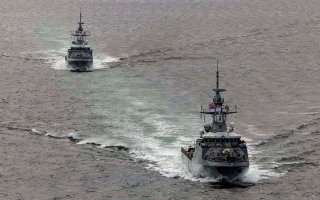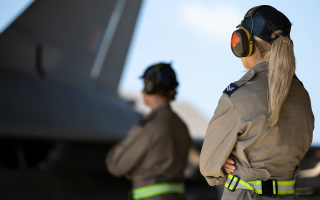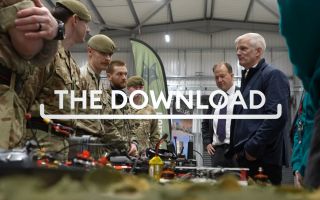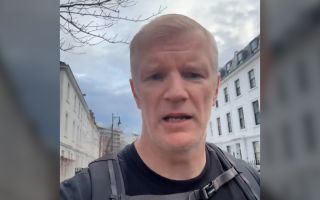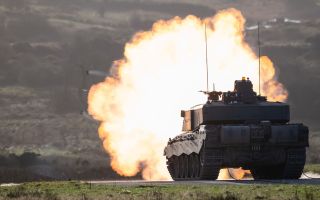What impact has Boris Johnson had on the military?
Since Boris Johnson came to power the military has been busy at home and abroad.
The Prime Minister announced he would be quitting as Tory leader after admitting he failed to persuade Cabinet colleagues that he could fight on.
Mr Johnson may not be riding a wave of popularity at home but one place that holds him in high regard is Ukraine. His persistent support of the country as it has battled against Vladimir Putin's invasion has won him fans.
Ukraine
As Prime Minister, he visited Ukraine twice sending a powerful message of solidarity to the world.
He backed his words with actions. As early as January, the UK was sending NLAW anti-tank weapons to Ukraine.
Since the start of the war, the UK has pledged £3.8bn pounds in support making it Ukraine's second-largest military partner.
Although British troops cannot fight in Ukraine, Boris Johnson has committed them in other ways.
About 8,000 personnel are taking part in exercises across eastern Europe this summer to combat Russian aggression.
He also agreed to a major training operation in the UK with up to 10,000 Ukrainian soldiers passing through every 120 days.
In a call after Mr Johnson's resignation on Thursday, Ukrainian President Volodymyr Zelensky is said to have thanked the outgoing Prime Minister for his "decisive action" to help Ukraine following the Russian invasion.
Mr Johnson said there is "unwavering cross-party support" in the UK for Ukraine, and he pledged defensive aid would continue for as long as needed.
Watch: How big a role has Boris Johnson played in the Ukraine conflict?
During his resignation speech outside Number 10 earlier on Thursday, Mr Johnson said the UK's support for Ukraine is one of the key achievements of his premiership.
Defence analyst Professor Michael Clarke told Forces News that Boris Johnson's role was "certainly at the beginning" of the crisis "actually pretty important."
"He represented one of the countries, Britain, with Britain and America going back to before Christmas, warning the Ukrainians that an invasion was likely and it turned out to be exactly right".
Professor Clarke added: "Then Boris Johnson led the political push to support Ukraine once it was clear that the Ukrainian government was not going to roll over and that Zelensky was still alive at the end of the week. The first week and was prepared to fight on.
"So Johnson's backing for him, personal backing for him and for the Ukrainian government was actually politically quite important in terms of the other allies."
Defence budget
The war in Ukraine has put a spotlight firmly on defence and Boris Johnson's commitment to increasing resources to eastern Europe has put pressure on the budget.
After intense lobbying by the Defence Secretary, he announced an increase in defence spending to 2.5% of GDP by the end of the decade.
Critics have also used the war in Ukraine to highlight what they see as flaws in last year's Defence Review.
Included in the review were plans to cut the number of soldiers in the army by nearly 10 thousand which attracted huge criticism at the time, but recent events have prompted some to argue it should be looked at again.
Watch: The Prime Minister told the House of Commons that troop numbers are kept under 'constant review' amid Russia's invasion of Ukraine.
Whilst the military focus is currently in Europe, two years ago, Mr Johnson was dealing with a different crisis that would involve the military.
The fight against coronavirus led to the biggest homeland operation in peacetime for the Armed Forces.
Their skills were used to build hospitals, run testing and vaccination centres, deliver equipment and support ambulance services.
It has been a busy time for the military under the premiership of Boris Johnson and they were not forgotten in his resignation speech.
He thanked them for their work which is so admired around the world.



